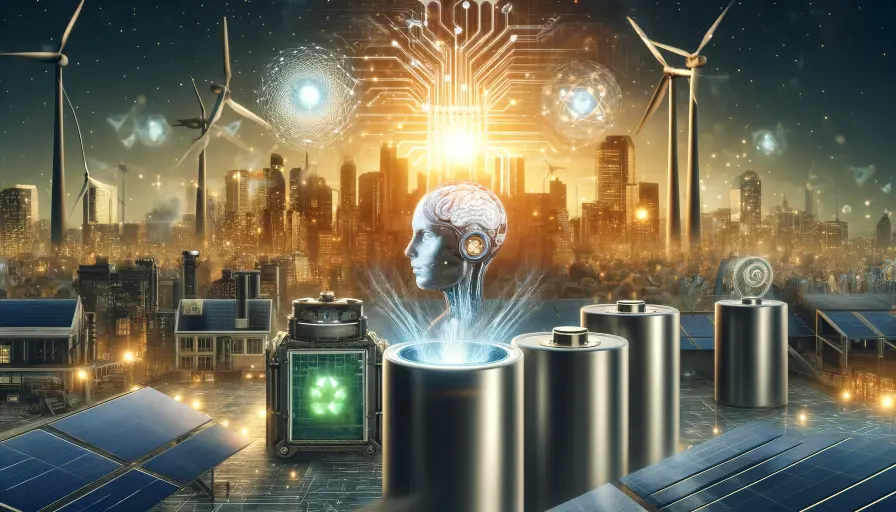Energy storage is a critical component of modern energy systems, especially as the world shifts towards renewable energy sources. However, there are several challenges and issues associated with energy storage today that make it difficult to fully achieve our goals.
High costs are a primary concern, particularly for advanced technologies like lithium-ion batteries, which are essential for large-scale applications but remain expensive. This economic barrier is compounded by issues related to capacity and longevity. Many storage solutions struggle to maintain efficient energy retention over extended periods, which limits their utility in balancing the variable outputs from renewable energy sources like wind and solar.
Additionally, as the demand for energy storage grows, scaling these technologies to meet the needs of national or global grids introduces complex technical and financial challenges.
Environmental concerns also play a significant role, as the production and disposal of storage systems often involve environmentally harmful materials. Mining essential minerals like lithium and cobalt raises sustainability and ethical issues, while the recycling of these materials is not yet widespread.
The technological maturity of newer storage solutions such as flow batteries and compressed air energy storage also needs further development to enhance their efficiency and economic viability. Regulatory and market barriers further complicate the integration of storage technologies into existing energy infrastructures. These systems often face outdated regulatory frameworks and market structures that do not support or incentivize energy storage.
Safety concerns are also an issue, especially with chemical batteries which pose risks of fires and chemical leaks. Ensuring the safety of large-scale storage systems is crucial, requiring advanced management and robust safety protocols.
Hydrostor Inc., a Toronto-based company, is making significant strides in addressing energy shortages with its innovative compressed-air energy storage system. This system is designed for long-duration storage, particularly useful when wind and solar energy supplies are insufficient. By storing energy in the form of compressed air in underground tanks, Hydrostor’s technology can release this energy to produce electricity for eight hours or more. This approach not only utilizes natural geological formations for insulation but is also environmentally friendly.
The potential impact of Hydrostor’s technology is considerable, offering a sustainable solution to energy storage that aligns with the increasing reliance on renewable energy sources. It represents a critical advancement for both the tech industry and environmental sustainability, highlighting a move towards more reliable and practical energy solutions that can support renewable energy even during low production times.
Hydrostor’s project not only illustrates the future possibilities for energy distribution and storage but also sets a commercial and operational precedent for other companies in the sector. This development is a key part of the broader movement towards replacing traditional power sources with renewable ones and using underground spaces for increased storage capacity. As the demand for efficient, long-duration storage grows, innovations from companies like Hydrostor will be vital in the race towards a sustainable energy future.
What researchers have found is that Generative AI (GenAI) can significantly enhance energy storage technology. By optimizing the charge and discharge cycles of storage systems such as batteries or compressed-air energy units, AI algorithms can maximize efficiency and extend the lifespan of these systems. They improve the forecasting of variable renewable energy outputs from sources like solar and wind, facilitating better planning for energy storage and release, ensuring optimal use during fluctuations in supply and demand.
AI also plays a crucial role in integrating energy storage into the power grid, managing the dynamic flow of energy from storage systems to meet changing demands and stabilize the grid. This is particularly vital where renewable energy sources are increasingly used.
In the realm of materials science and battery design, GenAI accelerates the discovery and testing of new materials and battery configurations, simulating their performance before physical prototypes are made. This not only speeds up innovation but also enhances the capabilities of storage solutions.
AI systems monitor the health of energy storage installations in real-time, predicting maintenance needs and potential failures. This proactive approach not only ensures consistent performance but also addresses the safety issue by monitoring critical parameters to prevent hazards such as overcharging or overheating in battery systems.
In economic and policy contexts, AI-based analyses help in understanding the financial implications of energy storage investments and the effects on electricity markets, assisting policymakers and businesses in making well-informed decisions.
Through these integrated functions, new and emerging GenAI technology could significantly boost the reliability, efficiency, and safety of energy storage technologies, positioning them as key enablers in the shift towards sustainable energy systems.
